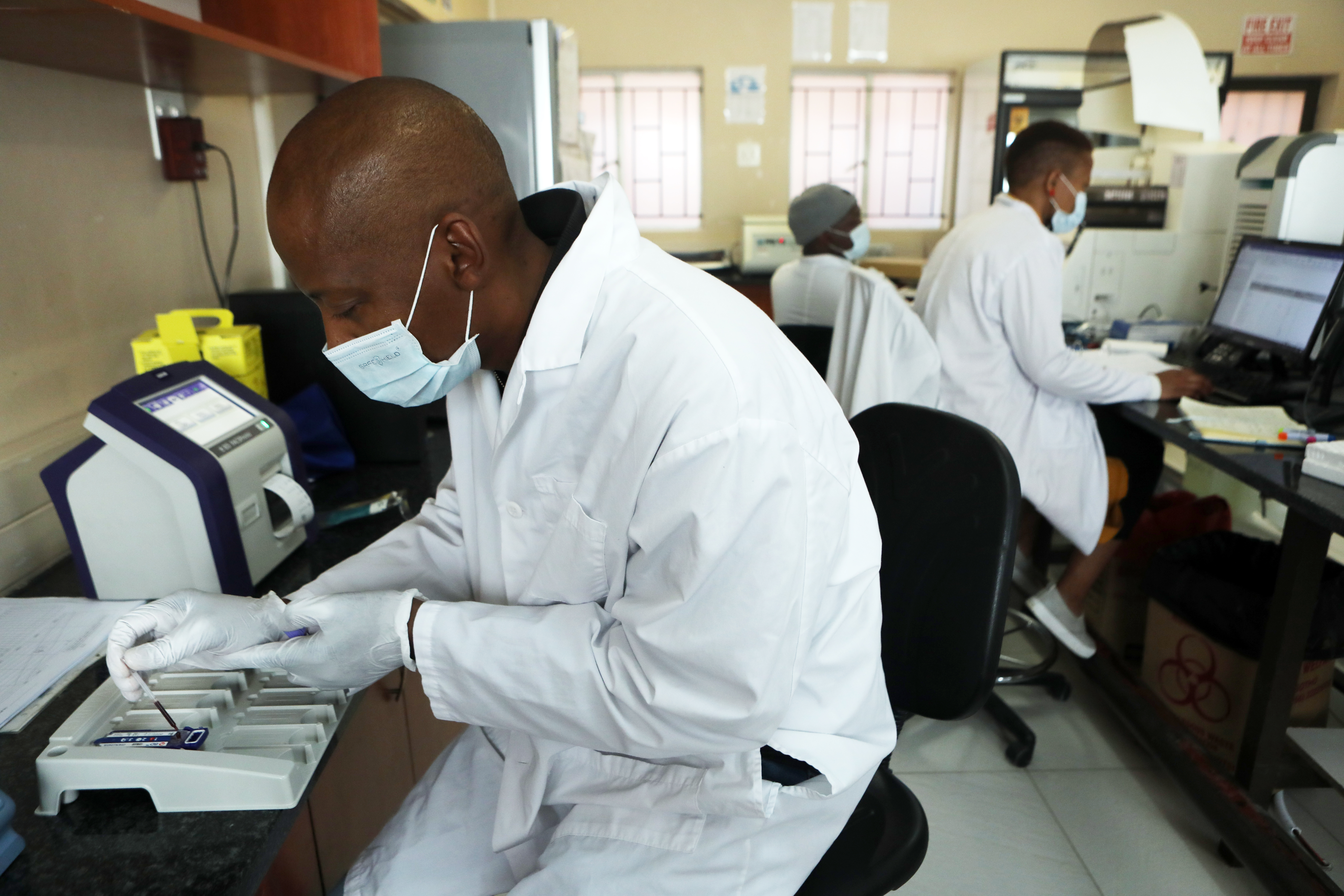Integrating Pandemic Response Into Primary Care
”No one is protected, until everyone is protected”.
It is a saying that was popular in the early days of the pandemic, when it was already clear a global challenge required a global response based on solidarity. Instead, rich countries raced to procure and then hoard vaccines while people in the Global South, suffering from lack of supply, were left behind. We’re left with the question: in the case of a pandemic, when fast action is critical, how can equity continue to be a guiding light?
The lessons learned from PIH Lesotho’s COVID-19 response show clearly that an equity-informed response can not only be fast, but also better.
The Kingdom of Lesotho is a small, mountainous country in the south of Africa. Famous for its beautiful landscapes, it has also earned a name for itself as a leader in the prevention and response to HIV. Between 2000 and 2018, new HIV infections fell by 37%, and before COVID-19 arrived, HIV-related deaths fell by 45%. At that time, 23.3 million people living with HIV were receiving antiretroviral therapy (ART) globally. But COVID-19 threatened this progress. It risked overwhelming the health system and disrupting the care people living with HIV needed to avoid their disease progressing to AIDS.
PIH Lesotho’s Chief Medical Officer, Dr. Afom Tesfalem Andom, knew PIH’s experience provided a path forward. When COVID-19 arrived in Lesotho, Dr. Afom and PIH Lesotho’s team of Village Health Workers (VHWs) mobilized for this new public health threat by integrating COVID-19 services into existing HIV care.
Pre-pandemic, VHWs would visit the homes of HIV-positive patients to support them in taking their medication and address their health concerns. When necessary, VHWs would also accompany patients to a health facility for additional follow-up. During the pandemic, VHWs integrated four additional components into their work: COVID-19 screening, education, referral, and contact tracing.
The results were better than even Dr. Afom could have expected. The activities of the VHWs effectively controlled the spread of COVID-19, not only among people living with HIV but among the communities PIH Lesotho serves more broadly. What’s more, treatment outcomes for HIV-positive patients actually improved during the pandemic. The percentage of patients who were virally suppressed – an important marker of good health – increased from 78% to 95%.
In July 2022, Dr. Afom was selected to share his team’s findings with the global scientific community at the International AIDS Conference in Montreal, an example of what is possible when emergency response is grounded in a community health system with equity and care for the most vulnerable at its core.
